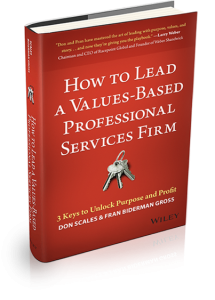
In this episode…
The world has placed a tremendous value on “getting to yes”. This week’s guest Akiba Covitz thinks we’ve missed the boat. Of course, we want people to say “yes” to us, but we’ve overlooked the importance of “no”. From his Deanship at Harvard Law to being a founding VP at EdX and now the CEO of an online education platform, Foundry College, Akiba learned the importance of understanding what “no” really means, and he shares that, with lots of other insightful learnings and lessons.
Episode Transcript
Intro
Being a purposeful CEO is hard, right? We need to take care of our clients, our teams and ourselves, all while keeping a laser focus on purpose. And then the world doesn’t slow down to make sure that you have enough time to do what you need to. It’s a heavy responsibility. And when we’re focused on all these things, we just want to get moving. We don’t just want to hear that dirty word. No. Today’s guest Akiba Covitz, has lived this purposeful dance for two decades. From his role as a college professor, associate dean at Harvard Law School, to the founder VP of edX, and now President and CEO of Foundry College,a funded future-ready virtual ducation platform. Along the way, Akiva has heard the word no hundreds of times, and he’s got such a purposeful perspective on the importance of the word. And he actually relishes hearing it. How different is that? Akiba? Welcome to Dr. Profit with purpose.
Akiba
Thanks, Fran. Thanks for the invitation. I’m very happy to be here.
Fran
So you’ve seen your sector or the education sector transform a lot over these last 20 years, and particularly in the last couple has definitely accelerated from your very traditional role at the Dean of Harvard Law to leading to cutting edge virtual platforms, could you help explain or share what parallels CEOs who are not in your sector can learn from your experience?
Akiba
First thing we have to understand to understand the sector are the people that are primarily responsible for leading the sector. And those are faculty members. So that tribe that I’m part of the faculty members, effectively, what you’re told when you become a professor, is that you’ll be the absolute expert in your field. Maybe you won’t make as much money as everyone else. But the one thing you’ll have is stability. So if you get the right degree, look at tenure, you have a job forever. And who can say that about any other sector. So that that’s the baseline presumption in higher education is that the people that run it, are faculty and faculty are brilliant. And again, not incredibly, highly compensated, but they take their greatest compensation to be absolute stability, unlike any other sector in the world. That’s your baseline, are brilliant people that have jobs for life. And the only reason the only way you can get them out of the way is if they effectively break the laws of nature if they do something horrible. And that doesn’t happen very often. So how do you get that group of people to change the highest value in their lives, is their expertise. And just behind that is this job stability. So that’s the baseline of how to go about bringing about change. The model that we have in higher education in the United States right now, up until about, as you said, 1015 years ago, had not really changed significantly in a century and maybe more. The American model is based on, you know, the German model, the European model. We have, again, this professors who are the world’s leading experts, things, it’s designed to stop change from happening. And I think the odd thing about American higher education, especially is when we think of college, you think of law schools, you think of places like Harvard, at least I do, some people do. Those places are going to be fine No matter what they do in effect, right? They have endowments, their brand is extremely powerful and valuable, and people are willing to pay for it. So if we think that higher education is going to change from the top down, those folks are the least likely to change. So as you said, one of my mid career moves was to go from Harvard Law School, to edX. So for those of your listeners who don’t know, edX was co-founded by Harvard and MIT to be effectively engines for change on both of those campuses. And then we opened up the console. to other schools in the United States, around the world, and again, innovatively we opened it up to companies, like McKinsey like State Street and places like that. So I think, to be honest, what we saw at Harvard, was a very innovative school like Stanford, that was moving very fast, specifically an online education. So Stanford famously appointed the first senior academic in charge effectively of innovation. And at Harvard, the decision was to do something similar, I don’t think Harvard would agree that we followed Stanford because we can’t, Harvard follows no one. That said, we were following some of the more innovative schools. And think of how complicated it was. So you have these extraordinary brands, Harvard is not only the oldest college in the United States, but the oldest Corporation in the United States. It’s been around since the 17th century, think of what it means to be the steward of that brand. So you can’t make a mistake. You know, three and a half centuries, for centuries of people have been curating this brand, you can’t do anything. To make things worse, you have to make things better, you just have to. So part of your soul will say, well, don’t change anything, just, you know, keep playing the same cards you’ve been dealt, you know, innovate just around the edges. But I think part of the reason that Harvard is the brand it is, is because it’s always innovated, it’s always seen around the corner, it’s been very careful, and looks at every element, you’re analytical. But then you have to decide if you’re going to change. And if you’re going to change, you want to change big and add x is a not for profit, and went out there and provided these things called MOOCs, massive open online courses, and 10s of millions of people use the edX platform. And here’s the interesting lesson for business, and why I am where I am now. So the other major company, and this is Coursera. So Coursera, evolved out of Stanford. And it was started as a for profit venture. And in fact, here we are talking, you know, in the beginning of April, Stanford, sorry, Coursera just had their IPO last week. So edX is moving along, it’s being innovative. It’s it’s had a few changes here and there. And it’s, it’s helped schools, develop their brands develop their online presence. Coursera, meanwhile, is a multi billion dollar company. So what I took from that, and
I went to the first Coursera partners conference as the representative from edX. And here I was talking about how great it was to be enough for profit, you know, less than 10 years later. Coursera is a multi billion dollar company. And edX is doing fine, it’s doing relatively well. But Coursera has changed the world in 35 million people or something like that. I’ve used Coursera, they now have full fully accredited degrees, they have hundreds of partners. They’re entirely global. So I think what higher education is trying to wrestle with now is, if you don’t have the profit motive, are you really going to innovate? Are you really listening to your customers, if they’re not really customers, because they’re not really paying you? So this is where and I’ve written a lot about this over the years, are learners customers or not? And is that reductive to think about them as customers? Are our learners, something fundamentally different from customers? Because learning is the sacred thing. So this, these are some of the questions that we struggle with, in this particular sector of American life.
Fran
It’s, it’s really quite fascinating, just the debate alone. When I hear you talk about Harvard Law and the brand, and is it protecting its brand, it’s purposeful brand, or is it trying to be a leader, you know, in this to protect its status of being I didn’t know that, by the way, the oldest Corporation as well as the, you know, the oldest, you know, educational institution. So I want I Russell, or I, you know, invite the discussion of it, are they protecting, you know, what are they protecting? Is it really more of their brand and, you know, while there is probably an unbreakable status, they are going to get, I guess, lost in the for profit, support of like, exactly what you’re doing a foundry. When you think about the purpose component of what funnel Laundry is about about being future ready. I mean, this is this is this is this is a real institutional problem of actually readying right? Our youth to be sustainable, and getting them the best, the best education possible to set them up for success. So this is such an interesting conundrum.
Let me let me start with Harvard. So to give full credit to my colleagues at Harvard, especially a man who just recently retired named Lambert. So what Harvard chose to do is basically take the brand for a ride. So edX is not for profit, and Harvard is not for profit. But Harvard also has something called the Extension School, open enrollment, and many Harvard faculty, but many people in the, in the real workaday world, teach at the Extension School, and you can learn all kinds of things at Harvard Extension School. And it’s an extraordinary generator of revenue for Harvard. So I don’t know if they’d like me to use those, those terms, generate a revenue. I mean, they produce many incredibly brilliant folks who come out of that I taught at the Harvard Extension School as well, some of the students there were at least as bright as my best students at Harvard Law School, and at Harvard College. So they are saying, okay, so it’s not, it’s not a profit motive, but the money that they raised from the Extension School helps to sustain the rest of Harvard extraordinarily. So it goes to sustain other programs at the Faculty of Arts and Sciences, and Harvard is a huge generator. But that said, and a lot of their courses are practical. But the Extension School, and I think this is still entirely true, even 10 years later, is is managed by the Faculty of Arts and Sciences. And from their perspective, as much as they enjoy the revenue which supports them in the research and scholarship that they do. There’s a limit to how far they can go in terms of what they teach and how they teach it. Because it has to be all their courses, their their curriculum has to be approved by that same faculty I was telling you about before, traditionalist, innovative in their own way, but limited. So foundry college comes out that from sort of the other side, so I had a classical liberal arts education. And I learned things like clear and effective communication, hope, hopefully, it’s clear and effective. Almost by osmosis, right? I was sitting around a seminar table, I was studying Shakespeare or Aristotle. And I would watch how my fellow students wrestled with ideas and presented their ideas. And I would see how the faculty members in class would respond to it. And I would sort of learn over time, the best way that I could present my ideas, the ones that went over best, what foundry does is we teach that directly.
So instead of it being a secondary or tertiary effect, when we started foundry college, and when my colleague Steven kosslyn, was the primary founder of foundry college, he went to leaders at American corporations and said, Okay, so in your entry level employees, What’s missing? And what’s missing was clear and effective communication. You know, how do you present something at a meeting, it shouldn’t be that you presented a meeting and the first 10 times it’s terrible, you should actually get practice presenting, not presenting some other subject. But here’s how you present in a meeting. And again, to praise my colleague, Steven cost, not only was he the leading psychologists on the planet, in my estimation, he wouldn’t say that about himself. He was the, you know, an endowed professor at Harvard, he was chair of psychology, he was dean for social sciences. He also wrote a bestseller on PowerPoint. So you can take the the insights from higher education, and you can apply it in real business. So we teach those basic skills. And what we do is for two terms for about six months, you you study those basic skills, clear and effective communication. And those are durable skills that allows you for the rest of your life. And then on top of that, you can specialize and as you said, get a real job. So the two of the fastest growing fields in the country are Salesforce administrator, and project manager. So we then partner with external organizations, so Salesforce itself and comm Tia, and we get their tests that they give people to say okay, so you want to be a certified Salesforce administrator. Here’s the test. We reverse engineer from the test. Back to the top of that those durable professional skills We give people at the end of eight or nine months, you can get a job anywhere in the country, you put those badges you get directly from Salesforce and come to on your LinkedIn profile. If 1000 people apply for the job, you’ll get an interview. Because not guaranteed but more likely than anyone else. Because you actually have that credential. You have the certificate, also from foundry college. And then you can get a job that pays $50,000 a year plus, and then you can do that job for a couple of years and then come back to us. And the next strategic move that we’re making is we’re becoming a nationally accredited Community College. So you can continue walking up that stack from professional skills to very directed skills at Salesforce or project management, we’re building new credentials as well. either stay with us get your associates degree, go work for a few years, make real money, again, it’s remote, productive, so we’re only teach things that were jobs you can get remotely. jobs with, there’s tremendous growth in the number of positions, come back, get your associate’s degree and from there, you can go anywhere you want. The other thing that’s important in terms of what we choose to teach is we’re only teaching things that will not be replaced by robots. In the immediate future. Project Management is a human skill, you have to manage other humans. And as much as we teach people how to do the automated parts in spreadsheets and things like that, it requires a human touch. So if you’re going to pick what school what provider, you’re going to use to pivot in your in your career, you want to pick something where you’re not going to be replaced by AI in five years, there’s no way that Salesforce administration will be done by a computer in the next 2025 years that requires direct interaction with humans, it requires a knowledge of inter relational databases that is not capable of computers doing in the immediate future. There are lots of people who are learning skills right now that will be replaced by by AI in the near future, we want you to be confident that when you come to foundry college, you’ll get these durable skills that will help you in your professional career as well as in your personal life. You can get a job, you can get your associates degree in business administration, all of those skills and all the jobs are preparing you for will be there 2025 years, who knows how far we can look into the future? If sci fi has any say anything to say about it, you know, we’ll be flying cars in six months. I doubt that’s the case. But what we’re teaching we’re confident will be a productive, well compensated job for the foreseeable future.
Fran
Do you see your own purpose in comparison to your position at Harvard, or any other institution at x or y u or anything, anywhere else you’ve been as different, to your role that you’re acting, you know, acting out your own purpose at foundry?
Akiba
Yeah. So I think, you know, I’d always wanted to teach at a place like Harvard, I think most academics do. It’s, other than Yale and Stanford, maybe the top of the pile, depending on who’s entering the question. It was wonderful. It’s a beautiful place. You know, there was a giant portrait of Louis Brandeis next to my office. And it’s, it’s extraordinary. And it’s it’s honestly, it’s thrilling to walk into a place like that. It’s the people who have been there before. It’s extraordinary. That said, the, and when I taught, you know, there, I’d be looking around the classroom, or when I was advising students, there’s a limit to my reach, right there. Take people who were extraordinary, make them even better, and give them access to my knowledge, my networks, and I can sort of lift discrete number of people up a discrete amount. And when MOOC started when these massive open online courses started when bandwidth started to get good enough You start to realize that you can take what you do. And you can have that same impact on 10s and hundreds of 1000s of people. And you can make the the privilege that I’ve been given to learn with the people that I’ve learned and the skill, whatever skill I have, and the knowledge I have. And I can make that available to so many more people who simply can’t go to Harvard, or places like that. So there’s a, there’s a point where you decide if you’re going to work a lot, you know, I’ll say 100 hours a week, but I’m sure it’s more than that most weeks, if you’re going to put in that amount of time. That there’s some part of you that some part of whatever, whether it’s your soul, or whatever it is that says, shouldn’t that effort have the maximum impact on the maximum number of people. I think there’s a limit to what asynchronous online learning can do. And that’s why I’ve landed at foundry college, and I found your college does all synchronous learning. So all of our classes are alive, we built our own platform to make sure that we could really curate live experiences. Unlike zoom, it was built for that. So zoom has tried to sort of post hoc put in things like breakout rooms, we built the tech team and Steven leading it, Steven causton, leading it created a place where you can really get to know other learners, where you spend a significant amount of time developing work products directly with your fellow students. We built tools that allow faculty to manage breakout rooms, by automatically tracking how much activity is happening in his breakout room. So we really tried to figure out what was limiting online education to reach the number of people live. So my first move was, you know, I’ll say about myself slightly juvenile MOOCs are great. There’s a really a limit to what they can do. They’re really, and all of my friends who see this who are in the MOOC world are not going to be pleased with this. But it’s it’s really good educational television. And you’re really good with some of the smartest people in the world, which is great. And it means that someone in Nepal, as happened at MIT can watch, you know, introductory courses from MIT, and learn things they would never be able to learn from their local schools, whether it’s because their parents don’t agree with it, or their school district doesn’t agree with that. You can learn anything you want, whenever you want to.
And just as long as you have bandwidth and a laptop, you can learn and that’s extraordinary. It it changed the world. The question is, is it really deeply education and the way we think about it, even digital natives just can’t watch videos for that long and stay focused, learning as a social thing. And unless you’re part of a community, you can’t learn in my view. And it’s hard to create ways that that are alive. But that’s a foundry has done. anyone in the world can come to foundry, learn those durable skills, which I was lucky enough to, you know, learn around my, you know, Chavez table with my family, and in school and in college and grad school, we can teach you those skills anyone can come and within nine months can, you know, come into the middle class and get a white collar job in the United States online. And to me that purpose, when I’m working on a pitch deck for investors, or when we have strategic meetings with my team, when we have endless meetings and personnel stuff that has to do with a team that’s all around the country right now, that time feels more purpose driven, because I’m helping people that otherwise wouldn’t be able to get to that place that they’d be in service jobs, which are wonderful for a lot of people. But for those people who want to have a different life have a blue collar world where their job is not going to be replaced anytime soon by AI, where they know that they’re going to get a reasonable salary. And they’re going to deal with other humans as humans, that makes those 100 hours go by faster.
Fran
Well, I we all get lost when we’re doing things that are intentional and very much aligned and I can I can I can assure you that our listeners completely see the direct correlation for why you would leave such a incredible, you know, career really at Harvard at to be able to impact so many more, you know, sharing education is such a big responsibility for the youth and for society around us. So it’s like, it’s almost like a twofer. Because you’re really focused, you’re a increasing the impact, you’re increasing the opportunity for everyone to have the impact. And that bears a great responsibility. Starting with middle class of those who can Orn or need with the focus of also, another particular question that kind of kind of came to mind in focusing on, you know, this long, or short term impact? You know, you’ve been talking about certain things that are much more long term,talk about the challenges of tech and AI. And, you know, not something that’s going to be obsolete in three years or five years. Yes, we are making, you know, great lightyear strides ahead. In the tech world, however, nothing, we all agree that nothing can replace, the human connection, and the human touch. And as we continue to develop our, our skills and our ability to communicate, because that’s the fundamental skill that we all need that is completely durable, in lacrosse, every industry and every job. Fundamentally, it starts with that, and then how can we then use our ability to articulate and get our point across in a short amount of time and as time spans tend to shorten our attention spans tends to shorten, the more intentional we can be effective we can be with our communication, the faster we can actually create, buy in, make emotional connection actually achieve change. It’d so inspirational to me to watch someone like you, who has had, you know, the privilege and the experience, and the opportunity to actually take such a giant leap in your career to actually dive in to double down on how hard you’re working, to be able to replicate that impact. I’m really in awe of all that you’ve committed to doing and all that you have rallied, your team’s to do. And that, in itself is a tremendous skill, have a lot of faith and a lot of emotional connection, to align the purpose as you prepare for these communications to investors and faculty and students alike. Or learner.
Akiba
Let me just say, Thank you, first of all, for that. Let me say that, I think there’s at least a moment every day, where I regret my decision to leave the comfortable world of academia to this, this rapidly evolving space of, of educational technology and higher education and learning and learning and development and corporate learning development. It is it is entirely unclear where it’s going. COVID just, you know, multiplied that by 1000. So that is not to say that, you know, I, I made a decision. And I’ve never looked back. I look back a lot. I used to really enjoy, you know, teaching the same thing every year. You know, you get up and you teach Marbury vs. Madison, you teach, you know, the separation of powers, you teach the things I used to teach. And there is something comforting about knowing what that’s like. But this is the other part of what I the way I think if purpose is there are lots of other people who can teach that. Lots. I know lots of them. I was a good teacher, I got lots of teaching words. I think I made it fun. I made it interesting. I probably did things differently than anyone else would have. And I am thankfully in contact with lots of my former students. That said, there are lots of people that can do it better. There are lots of people that can do just about as good. The question is, am I the only person who can do this? And I think that’s what gets me through those regretful moments where it’s like, I used to get on a train, go to my beautiful office at Harvard walk through the gates. You know, I had free coffee in the hallway and the beautiful art everywhere and these inspirational spaces and, and, you know, I I’ve spent most of the last 10 years, just traveling before this past year, trying to convince people that they should join me In this new world, and that, you know, hopefully it doesn’t sound too self important. I don’t think there are that many other people who could have done the things that I did, because, I gave up that place before you think that you’re on your way to being Harvard, I was there. And I said, you know, it’s great. And it’s amazing. And they’re still, they’re doing great. And I’m doing even better than it was when I was when I was there. But there’s this other things that are happening out there. Those are the things that I’ve been able to do. You know, I’ve pitched to 1000s and 1000s of people, Provost presidents, CIOs, CTOs, faculty, students all over the world saying, you know, I’m not here to degrade your brand, I’m here to improve it. I’m here to show you that this is what’s going to happen the next couple of years, you’re going to deny it until after it happens. But it’s here, you just haven’t heard the news yet, because you’ve had your finger stuffed in your ears. So that’s the other part of purpose is, as much as I regret some days not having that sort of very bounded, clear life where you sort of move just one day at a time and you know, exactly, there’s always going to be money, there’s always going to be people applying to go there. Students, faculty, staff, and none of that’s true in edtech. When you start a new company, no one’s ever heard of it. But that’s one part of just to get to the particular part of branding, is, as I was saying, we could go to market as founder college, and we will, and we are, and we have billboards, and SEO and all that. But part of what we needed to do to grow was we needed to partner with known brands. So part of building a new company, like foundry in a new college is that we built a connection with something like Salesforce. So having a foundry certificate on your LinkedIn page, it’s pretty and we have a nice logo, but I’m not sure how it helps you particularly right now and get a job. But if you have our brand along with the Salesforce super badges, then the you apply for your job, you know, indeed, or whomever searches through your, your LinkedIn profile matches up the requirements with the super badges, and then you’re in the next pile, and then we give you the skills to get to the interview, keep the job get the next job. So that’s the other part of in terms of just straight up marketing, where as much as you think your product is super cool, you also have to recognize that there are existing brands that you have to build on not as good as Harvard’s brand. Although some people might argue that Salesforce is something more valuable than Harvard, but we can have that argument.
Fran
I don’t think we need to but that’s okay. But you know, Harvard will give me a great base, and great connections and a great network and all and, you know, it will shape me in the way I think, as I aspire to, you know, participate in OPM, however, just coming out the education, different ladder, right. However, when you think about the market segmentation and what the world needs right now, they need to be able to put skilled people who are able to clearly communicate, and build an emotional connection, so that their company can advance so that their team can advance so that the world can actually take this middle portion of jobs, and actually fill them with great people who just need the support and the skills. And what you’ve done is really interesting, when you look at the sort of for profit college, and you say, Okay, Mr. Big corporations, tell me what you need, so that we can support the soft skills, the things that are not going to go away. And give these people you know, this segmentation that is interested, you know, the ability to finish first, you know, my co authors told me the story ones about his mom, and it’s really stuck with me. His mom used to challenge him in a very interesting way. She is very, you know, she’s an English teacher. Really just soft spoken, probably, that I wish I could have met her while she was alive, but motivated him in a very interesting way said, you know, somebody has to finish first. I don’t see why couldn’t be you. I think about that, as you, you know, you’re giving a chance to middle America, right? Or we could say the middle class sector that wouldn’t necessarily, you know, they would get a hard skill, but they wouldn’t get the soft skill with it. And I I believe that what you’re doing is Paying attention and taking this cross section and giving great people the diamonds in a rough or real chance. And at their learning capacity, ability, right? They chances are they have to support someone or contribute somewhere to their family. And they don’t have the financial luxury, you know, to take a few years off and to go think and study where we need to get them, a viable job, and productive as a contributor, as a learner who is actually contributing to society’s advancement. And then, if we, if we activate their curiosity, enough, how they can stop that ladder and come back for more, and they think, you know, again, to your greater impact side of your purpose, you absolutely are supporting many more than you could. In the current state, you were and I applaud you in convention for the risks that you take every day,
Akiba
You mentioned Middle America, one of our biggest supporters and customers is the George Kaiser Family Foundation in Tulsa, Oklahoma. And what they wanted to do, I mean, they do many things, and they’re one of the largest foundations in the country, when we hear their name all the time, they’re especially involved in healthcare issues. But they’re particularly focused on, on raising up the community of Tulsa. I’m not sure if you know, the story of George Kaiser, you know, his family, made it from Germany to middle America, and became, you know, extraordinarily wealthy, and the foundation is committed to helping there that this community that nurtured them as well. So what they do is they, for free, anyone who lives in the Tulsa area, can come to foundry college. And instead of giving them what I might derisively called sort of a narrow skill set or brittle skill set, you know, learning how to do this one thing like replace screens for iPhones, or something like that, or work on some particular piece of equipment that might not be here in five years. As you said, we’re giving them the skills that they might not have had been lucky enough to get around a table. In a college where I had the luxury of spending four years in grad school, and law school and all those other things, we’re giving them those advantages as quickly as we can. Our students, our NPS score for our students is, is almost 70. For an online learning program, which is much higher than our other things in the same space. We are taking in it’s very hard, it’s very hard work. But it’s part time, as you said, you can keep a full time job and still be at foundry college, we don’t have any homework. W We’re much cheaper than boot camps where you have to spend a ton more money and it’s full time to give up your job, you have to borrow a lot of money. We’re trying to meet the learner where they are. And maybe this is the other part of I think what my colleagues at Harvard most objected to about the kind of things that I’m doing now is we see learners as customers, these are people that you can’t expect them to do what you want them to do, because you want them to do it. If the flip that as any other business would and say, What are people looking for? What do they need? So on that sense, we have really two customers, you have the learner who is out there doing a job that they’re not fulfilled in and maybe not making enough money, maybe they’re, they see the writing on the wall, they’re going to be replaced by a buy, you know, I’m sitting here, looking at Amazon boxes around me and I buy automated forklifts. And we’re also the other part of our customer base is the employer. What are they not getting when they go out to the marketplace, in human resources to find people, and they’re hiring people who have the narrow skill set that’s listed on the job requirement, but they don’t have the human skills, they don’t have the soft skills, the professional skills to exist with other humans. So that’s the other part of how I think higher education as an industry has to change. I even think of higher education as an industry I think is a huge leap for a lot of people. But once you do once you recognize that learners are paying you money for a service, they want a return on their investment. It’s not, you know, the four year life experience of eating pizza and drinking beer with your friends or making decisions about not having the other piece of pizza or the other beer and what you learn sort of again by osmosis people Most people don’t have that luxury. That’s the purpose that trying to figure out how to do that, how to curate that experience, that serves both the learners and the employers that are going to hire our learners.
Fran
When you think about the learner as your customer, you know, driving ROI, as how we drive profit with purpose, is really key, because you’re really taking a moment to think about, okay, what is our customer need? How are we going to improve their lives, however they can afford it, you’re meeting them where they are, and you’re giving them the maximum for not necessarily the minimum, but you’re actually creating a curated space for them, you’re carving a lane for them to walk in?
Akiba
Yeah, I think a lot of investment in her in her education goes towards the top people. And, again, I loved working with those brilliant students. I mean, it’s extraordinary. I was just back and forth with one of my students who at Harvard, who, who I don’t, it gets to political was involved in a very important political activity recently, just brilliant. One of the smartest kids I had ever worked with in my life is a fantastic lawyer thinks brilliantly fast. I just don’t know if my work with him, really, like changed his his level of being at all. I mean, if you sort of take a step back, and you look at where his name is Joshua, where he was when I started working with him, versus where he was after, I mean, basically, it’s the same, I think I gave him a few extra things to do. But why aren’t we focused on that giant bottom of the pyramid of people? Partly because, to be frank, there’s more money to be made. When you’re talking about getting a small amount of money from a large amount of people, as opposed to a large amount of money from a small amount of people, it’s still just better business. That said, just to make clear that, that for all of my investors who watch this, that’s what I’m focused on. But that’s, it’s also it’s also better for the planet and better for for the world. If those people who would normally be doing these very mechanistic jobs, that are not going to be there in a year, and then you’re gonna have to figure out how to support those people who don’t have jobs. If you can give them an effectively, everyone has the skill sets to be a Salesforce administrator, project manager, anyone who’s, who’s made breakfast, done a phone call at the same time, and thought about what dinner is going to be like and tried to figure out, that’s a project manager, you just have to give them the specific tools, more or less anyone can do that. giving those people a sense of purpose in their lives, that what they’re doing only they can do well, as opposed to taking someone’s order at a fast food restaurant, which is effectively going to be done by app within, I don’t know, a year. Knowing that or, you know, even flipping burgers or even things that are not that mechanistic, you know, pulling packages that have a pile, this is gonna be a robot in two years that Amazon’s gonna have, that’s going to do a lot of those jobs. And to Amazon’s credit, I love Amazon, Mr. Bezos, you’re extraordinary. Um, you know, they they are they offer their employees the opportunity to train as coders and do other other things. They’re telling their own employees, listen, it’s possible that your job won’t be here in a few years. If you want to stay working for Amazon, I mean, why you don’t work for Amazon, because you already can’t understand the culture, onboarding people takes time and money, we will pay you, in effect to upskill yourself. And this is why there are giant companies in the education space like guild education, a company we work with called Learning, which is working with giant companies and saying, okay, so you want to upskill your labor force, you don’t want to go out there and figure out all the small companies that are doing this for the schools will serve as the broker as the middle person for this process. I don’t want the headline and coming out of this thing that I regret leaving my cushy job at a top school. But I think there’s tremendous opportunity to make a real difference in people’s lives in education in a way that wasn’t possible before in terms of impact and scale and as you put it purpose.
Fran
Well, I keep I think that’s really the point here, right? This is not about Anything other than you activating your purpose and giving, you know our listeners great takeaways on what they can do. You know, as we struggle with the the intellectual fact that purpose is here to stay and that people need to feel fulfilled and rewarded for their contribution at work, and therefore, you need to be able to affect hundreds and possibly even millions of learner student customers, to give them what they need so that they have a return on investment so that they can continue to upskill will elevate themselves and fulfill themselves as individuals. I wonder though, I’m kind of curious, as I just tip the conversation a little bit back to you as a CEO? How do you view your responsibility for your employees. It’s quite quite a hefty job with a tremendous amount of time. And as you said, before you’re managing a team across the country, probably Volterra virtually, almost 100%. But how do you view your responsibility for your employees,
Akiba
I have been CEO for a year, and I have not met a single person in person in that time. Not one. So that that that in itself is challenging, I think the broader challenge that I’ve seen in my particular role is, as I said, we’re a startup. You know, we’re venture backed, we have revenue, and more effectively self sustaining. But there are employees who, you know, who are well aware of the fact that we’re venture backed, where two and a half year old company, they could work, you know, if you want to be, for instance, we have a series of coaches that coach our students, their students come from a wide range of prep, preparatory backgrounds, it’s just easier for some and harder for others, we help people prepare for the job market, we help them with their resumes and all that stuff. Let’s say you’re a coach, you could be a coach for us. Or you could be an online learning coach for a big nonprofit like Western Governors, or Southern New Hampshire, or ASU or university pick, pick whatever school you want to pick, and they know that, that they can see 1020 years down the road as a giant, whether they’re for profit or not, for profit organizations, it’s comforting, you know, you work your way up, you have all the normal trappings of a big company, we don’t have that, you know, our code we have, we have a small coaching team, managed by one of my senior team members. There, the sense of, of stability, but not ultimate stability. To me, that’s, that’s the hard part is, as I said, when I hired people over the years at Harvard, as it’s the oldest company in the United States, and North America, and all of the New World.
You know, that if you do your job, the job will be there forever. And there’s all the other trappings you have, you know, all the benefits that come with working for a large company. You don’t have that with a startup. So the biggest challenge I think I face as a CEO is, is getting people comfortable with throwing themselves 100% in to a venture backed company. We have investors, I’ve already spoken directly to them here. They’re looking for a return on their investment, just the way students are. They’re looking for that magical 10x plus. Those are the two true complexities other than becoming a CEO during you know, the time of COVID is getting people comfortable with the relative lack of stability that working for a startup. It’s hard, it’s hard for me as well. I know you know, I one of the windows open at the top of my screen is our our bank account and our QuickBooks, it’s always on my mind. We’re thankfully well funded. But you know, we we are a startup and most startups fail. And that we have employees who are just that makes them uncomfortable. We have employees, most of them have, thankfully, we’re really excited that they can play a key role in transforming a company. I have a tool I use called calendly, which allows people to put time on my calendar. And thankfully, even though I’ve never met anyone in person, they just reach out into my calendar and they set up a time to meet with me and we check in that doesn’t happen in big companies. I don’t think so. That that As the biggest challenge, raising money for business as well is also sort of my second challenge. It’s working with investors, deciding strategically what what you’re going to do, because the field is wide open, we’re new, and education itself is wide open. So you can do what you want, as long as you can make it happen. Those are big challenges, whereas the the world of possibility at a established school, it’s it’s relatively wide, but it’s bounded. There’s certain things you just can’t do. So it again, it’s it’s both energizing and innovating at the same time.
Fran
Well, thank you for that vulnerable answer. There’s a lot, there’s a lot of empathy that goes into running any particular company. You know, you mentioned previously, that a leader has to expect to be told no. Can you elaborate on that a little bit, maybe even share a story, I believe that this is really a critical learning takeaway for our listeners.
Akiba
So going back to Harvard, the person who wrote the book, Getting to Yes, the lead author was getting Roger Fisher, who was lucky enough to know near the end of his career and the end of his life at Harvard. And I think we spend a lot of time as you know, I spent a lot of time in business development and revenue generation. You spend a lot of time thinking about how to get to yes, I think the harder skill set to develop is, is hearing No, and understanding how to respond to that. Sometimes No, is just no, right, you get a sense of the fact that there’s just not a match here. And that that has to be heard sometimes as well. But most of the time, in business, no just means, you know, it’s not now or you get a message like you you do a pitch you seems like it goes well, you make sure that you have takeaways and action items at the end. But someone writes back and says let’s set up a you know, I’m not sure about this, you know, these three people might be a little hesitant about this, it’s a lot to ask of them, they’re really busy, they have a lot on their plate, I’ll get back to you in a month. That’s no, and you can’t let that know stand. You have to find ways to say, and I use a little bit of humor sometimes to get around that, you know, I use empathy, as you said, like, Listen, I know this is a lot, I know, you’ve never done this before. But what you have to do at that point is show this leader that if they go slightly beyond their comfort zone, that they’ll be seen as the one who identified the win, and they’ll get credit for it. So if you say to a partner, that, you know, a partner says, you know, we’ve never done this before, we’re already doing this, we’re already using this company to do this, it’s working fine. You have to find a way to show them to empower them. That what that they have an opportunity to bring this beautiful new thing which could transform the company and they would get credit for it. To me that’s an edit is just, there’s mechanical stuff like literally setting a weekly reminder, I have hundreds of reminders on my calendars, where I just, you know, wake up in the morning very early, and I’ll have it populate, I’ll have like 30 follow ups to do. And I have a small team, I do sales, I do business development, I do all that. It’s probably a mistake, I should probably hire a sales team. But we’re a small company. So I enjoy that part of it. It’s just sending a short, clear note, making clear that you respect their time to just get them to move forward. And again, empowering them to see that they could be an overstatement. Again, especially given my religion, the Savior, right, they could be that person that makes the difference that their company or at their school. Finding a way to hear that and see that. And, again, I want to be clear, sometimes no is just absolutely not it can’t happen. There’s no money. There’s no team, something is just fundamentally missing. But most of the time, no means you know, I’m not sure.
And you know, President Obama had on his desk, you know, something that one of his lead advisors said for him, which is that, you know, hard things are hard. Right? Um, my one of my favorite quotes from my undergraduate experience where I studied Believe it or not ancient Greek is that Greek gets called pataskala, which is beautiful things are difficult. Right. So it’s not just that hard things are hard the way that President Obama had in his desk, but sometimes, almost all the time, the thing that’s quite beautiful to do is really difficult to do. And giving them the sense that you’ll be there that you’ll support them. They have processes in place to do that. But also just, you know, and it sounds hopefully it doesn’t sound too manipulative, but to give them the sense that they’ll be the one that will be seen as the one that recognized in a complex situation in a cloudy situation that this was the way to go.
Fran
Well, that was a, that was a great nugget, amongst so many others that we’ve heard today. Two final short questions. What is a leadership trait that a purpose champion must absolutely have?
Akiba
So to build on this previous answer, I think it’s resilience. To build also on that same question that the same thing we just said before, it’s the ability to not get discouraged when you hear no,, I’ll pitch sometimes 1015 times a day. And the initial answer, at least in about 80% of those times is no, or it’s, it’s Yes, but or it’s no, but not letting that affect you personally, or emotionally, is hard. I constantly think of baseball, where even the greatest hitters who are 300 lifetime head 300 average lifetime hitters are great. If you get three hits out of 10, you’re, you’re not quite Hall of Fame, but you’re really good. If you get four, it’s at a 10. No one does, right? Somewhere between three and four. That’s fantastic. So instead of focusing on the six or seven strikeouts, you focus on those three or four and you keep yourself going.
Fran
So the very last question was, what’s one tip you could share with our listeners that they can use to remain focused on their purpose? I know that you’ve said a few before, I’m just going to slide that one into homebase.
Akiba
One single tip. I don’t know, I think I think I might push back a little bit about that, as someone who’s who’s traveled literally millions of miles over the last decade trying to innovate. You know, I used to go into those airport bookstores all the time. And they always, you know, have that title like that one trait for a CEO. I, I fear that. The sense is that if you just can’t forget that one thing, that you’ll be successful. And maybe the one tip I can give people is that there’s not one tip that will make you successful. it’s the whole series of trades around resiliency. around that sense that if you’re committed to the purpose of the company, and your own personal purpose of, you know, in my case, bringing education to the masses in a reasonable way that allows you to be resilient in the face of almost constant failure. So if you can keep your purpose somewhere near the front of your mind all the time. It allows you to have the resilience you need to be to be successful.
Fran
Beautifully said,
Akiba
Sorry, I couldn’t be more pithy.
Fran
No, listen, it’s very difficult to remain focused on your purpose when there are so many outside factors that you know, push and pull and vie for your attention, your time and to remain true to yourself. It’s hard to remain focus sometimes without without the pressure and noise. So, you know, having the resilience, to keeping that top of mind, I think is is really super important.
Akiba
And again, to provide some Praise to you and your colleagues. Well deserved praise, I think, making sure that that purpose is at the center of the center of your activity, is is everything. Without it, you can’t succeed. Even if you do succeed, even if the company is successful financially, you will not feel successful unless that purpose is there on on a almost constant basis. So I appreciate the fact that despite you know what your broader business goals are, that that’s the central central focus of what you do.
Fran
You know, we’re just pulling all the proof points. I mean, as an agency when you think about the three keys, and the call Cause and effect on how you can reap the result of profitability. The bottom line is that the three keys were designed to help leaders clearly articulate so that they can lead and follow at the same time to empower and inspire. So that when there is unity alignment, there is momentum. And when when there is momentum, you have the result in thriving. And in a for profit business, the result of thriving is profitability where your stakeholders, you know, are rewarded, if you will, for their foresight, and their alignment as well. So, despite, you know, nonprofits and or education learners, our customers, we do need to give them a path of least resistance on how they can truly contribute to their family, and whatever it is their needs are. And you’ve done a really incredible job. And I look forward to the partnerships of foundry, I would love to see them partner with the workforce development and the government really using payroll taxes and contributions to actually upskill our own teams. But I’d love to see you partner and make it easier for us to upskill our own teams and to give them the more the soft and hard skills for us to move faster together as well. Thank you so much for all of your time and your prep. And I really appreciate our friendship and continue to support you in any way that I possibly can.
Akiba
Thank you. And thanks, again for the invitation. These are the kinds of conversations that that make it easier to go through the next, you know, 10 hours of meetings.
Fran
Absolutely. Although I think I’ve made you late for the next one. Thank you.
This episode is produced by…
This episode is produced by Advantages, an award-winning branding and marketing agency that turns buyers into believers. They have worked with companies as far reaching as the new terminal one at JFK airport, as well-known as Jay Z, and as fun as NFL football teams, along with some of the world’s most impactful nonprofits and aspirational mid-sized businesses.
Advantages uncovers the meaning within brands and infuses it into experiences—purposeful branding, engaging events, and strategic marketing.
Explore how this agency can help infuse purpose into your brand so that you connect with the audiences that matter most to you.
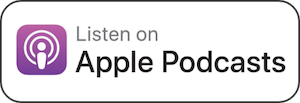


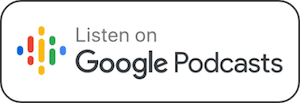
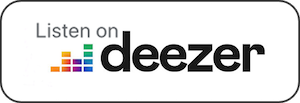
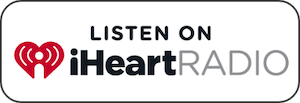
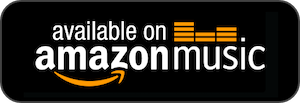
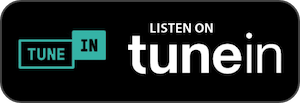
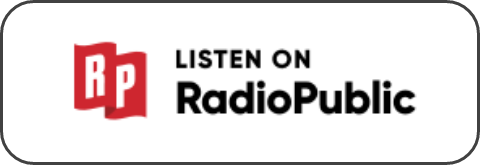
 For more than three decades, Don Scales has run professional services firms and understands firsthand how to make them succeed. In his current role of global CEO of Investis Digital, he is executing on his vision to lead a company unlike anything else in the digital communications space. He’s put together a team with deep expertise in corporate communications and investor relations and united them with innovative performance marketing experts and world-class technology solutions to help companies connect with audiences across all digital touchpoints.
For more than three decades, Don Scales has run professional services firms and understands firsthand how to make them succeed. In his current role of global CEO of Investis Digital, he is executing on his vision to lead a company unlike anything else in the digital communications space. He’s put together a team with deep expertise in corporate communications and investor relations and united them with innovative performance marketing experts and world-class technology solutions to help companies connect with audiences across all digital touchpoints.